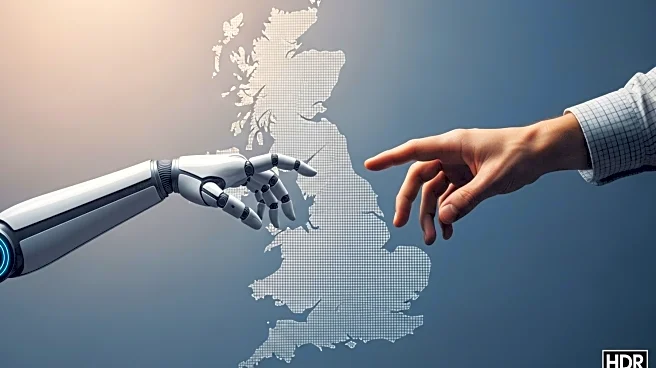What's Happening?
The Institute for Employment Studies (IES) recently held its annual conference in London, focusing on the future of the UK labor market and the role of artificial intelligence (AI) and human intelligence. Neil Carberry, CEO of the Recruitment and Employment Confederation, emphasized the importance of human intelligence in the workplace, suggesting that AI will significantly change work dynamics but should complement human skills development. Carberry advocated for a collaborative approach to hybrid working, viewing it as a 'mode of production' rather than a mere benefit. Sarah Pass from Nottingham Business School highlighted disparities in employee engagement, particularly among LGBTQ+ staff and less senior employees, noting that higher engagement correlates with better individual performance. Matthew Ambrose from the Institute of Employability Professionals discussed successful AI integration in employability services, stressing the importance of people-led, technology-enabled projects.
Why It's Important?
The discussions at the IES conference underscore the growing influence of AI in the workplace and the need to balance technological advancements with human-centric approaches. As AI continues to evolve, businesses must prioritize employee engagement and skill development to maintain productivity and innovation. The insights on engagement disparities suggest that organizations need to address inclusivity and support for diverse employee groups to enhance overall performance. The emphasis on collaborative policy development for hybrid working reflects a shift towards more flexible and adaptive work environments, which could lead to increased job satisfaction and retention.
What's Next?
Organizations may begin to implement strategies discussed at the conference, such as enhancing employee engagement through inclusive practices and developing AI projects that are people-led. Companies might also explore new policies for hybrid working, fostering dialogue between employers and employees to optimize work arrangements. As AI integration becomes more prevalent, businesses will likely invest in training and resources to ensure successful implementation and address any concerns employees may have about technology's role in their work.
Beyond the Headlines
The conference highlights a broader cultural shift towards valuing human intelligence alongside technological advancements. This approach could lead to more ethical and sustainable business practices, as companies recognize the importance of employee well-being and inclusivity. The focus on engagement and productivity may also drive long-term changes in organizational structures, promoting a more collaborative and supportive work environment.









